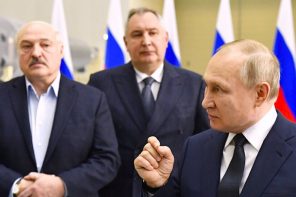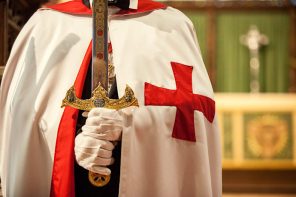In Russia, few public figures wield more political influence than the head of the Orthodox Church. The election of Kirill I as Patriarch of Moscow and All Russia marks a new chapter in the Church’s millennial history, but its consequences extend far beyond church walls or even Russia’s borders. Although the choice of Kirill was predictable—after all, he had been the most recognizable and outspoken Orthodox cleric—what remains unclear is how his leadership will change the direction of the Church, and what it will mean for Russia and other post-Soviet countries such as Ukraine, Belarus, and Moldova in the years ahead.
Kirill’s predecessor, Alexy II (1990-2008), had presided over the greatest revival of Orthodox Christianity in Russia since the 10th century. In a matter of two decades, the Church was transformed from an oppressed minority on the brink of collapse to one of the country’s most powerful institutions. Today, roughly seventy percent of Russians claim an affiliation with Orthodoxy, and the Church operates hundreds of monasteries, schools, and parishes in Russia and abroad. Surely, these developments would make Lenin turn in his tomb!
Despite these achievements, however, plenty of challenges remain for the newly elected Patriarch to address. First of all, Russia’s religious revival, impressive as it may be, has been largely superficial, having little effect on church attendance and belief in particular religious doctrines such as the divinity of Jesus and the afterlife. By these measures, Russians remain quite secular, even if they see Orthodoxy as a key aspect of their national identity. Surprisingly, the younger generation of Russians, who were not brought up in atheism, are the least likely to profess religious beliefs. This fact makes the task of restoring faith all the more difficult.
Perhaps more important are the many social and political implications of the Church’s activity in Russia. It is here that Patriarch Kirill is likely to make a contribution. Within Church circles, Kirill is considered to be a modernist, and his election can be viewed as something of a progressive turn in Russian Orthodoxy, though Kirill certainly isn’t a religious or political liberal. Kirill’s conservative detractors have often accused him of being a “crypto-Catholic” and seeking closer ties with the Vatican to the detriment of the Orthodox faith. Indeed, as the Russian Orthodox representative to the World Council of Churches and head of the Moscow Patriarchate’s External Relations Department, Kirill had often advocated interfaith dialogue. Speaking of relations between the Orthodox Church and Russia’s Muslim community, Kirill had said, “We need to listen to the voices of our Muslim brothers. Otherwise we will not understand anything about modern Islam. At the same time, getting to know another’s position does not mean that one needs to change one’s beliefs.”
Threat to Religious Minorities
Unfortunately, Kirill’s somewhat ecumenical perspective on interfaith relations does not make him a believer in the freedom of religion. He is known for his fierce criticism of the missionary work done in Russia by the Roman Catholic Church and of Western evangelicals, and he played a role in passing the controversial 1997 Law On Freedom of Conscience and Religious Associations, which restricted the right of “nontraditional” religious groups to spread their faith in Russia. On the day of his election, Kirill gave a speech, once again speaking out against the work of Catholic and evangelical missionaries. “We must attentively follow developments and where necessary quickly and decisively react to threats,” he said. Reminiscent of the Cold War era, such belligerent rhetoric on the part of the Patriarch spells trouble for Russia’s religious minorities.
Russia’s fledgling gay rights movement and other politically liberal human rights organizations also will not find an ally in the new Patriarch. In a recent interview, Kirill criticized the Western interpretation of human rights that allows for what he sees as immoral behavior. “Movements are emerging that support the right to homosexual marriage, drug use, prostitution, and euthanasia. We cannot allow for democracy in our society to be measured by such criteria,” he said. In recent years, Orthodox groups have fought against public displays of homosexuality in Russia, and this fight is likely to continue under Kirill’s leadership. One of the reasons the Church has been successful in combating gay rights is that it finds broad support on this issue among the Russian populace. Even many within Russia’s secular community oppose gay rights.
Religion in the Schools
Another controversial issue in recent years has involved the teaching of a course called Fundamentals of Orthodox Culture in the public schools. Critics of the course have pointed out that it violates the constitutional separation of church and state and promotes religious intolerance among the children by elevating one religious tradition above the rest. The Church, however, continues to advocate the teaching of Orthodoxy in the schools. In the past, Kirill has lent his support to this cause. “Each Russian citizen has to know the fundamentals of Orthodox culture, even if he is a Muslim, a Jew, or a Buddhist,” he explained. This position is likely to lead to a clash with Russia’s academic community, which largely opposes any attempt at religious indoctrination in the schools.
It is also interesting to speculate how Kirill’s election might affect Russia’s relations with neighboring countries. Many of the post-Soviet states have sizable Orthodox populations that fall under the responsibility of the Moscow Patriarchate. The Church has encountered the most serious problems in Ukraine, where many Orthodox parishes have established their own unrecognized patriarchate based in Kyiv, leading to a split within the Ukrainian Orthodox Church. In Ukraine’s unstable political environment, churches often become a weapon in election campaigns, and Ukrainian politicians are likely to exploit the religious controversy to their advantage as the 2010 presidential election draws near. Russian-leaning politicians such as Viktor Yanukovych will appeal to Kirill and the Moscow Patriarchate for support, while Westward-looking candidates will seek the endorsement of the schismatic churches. It is highly unlikely that Kirill will be able to reunite Ukraine’s churches under Moscow’s leadership, but he may succeed in preventing Kyiv from being recognized as an autocephalous center of Orthodoxy. Kirill also is likely to engage with churches in Belarus, Moldova, and the Baltic republics to ensure continued support for Moscow’s leadership.
Ultimately, Kirill’s personal charisma and rhetorical ability are bound to make him a popular Patriarch, but it remains to be seen whether he can extend the influence of the Church domestically and internationally. More often than not, Russian progressives and religious minorities will find themselves in opposition to the new Patriarch, but his election can nevertheless be viewed as a step in the direction of interfaith dialogue and modernization of the Orthodox Church.




